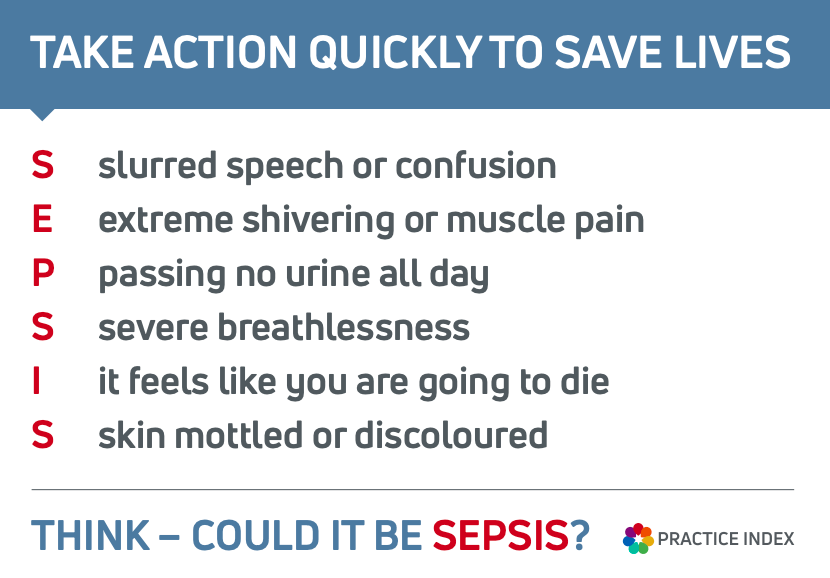What is sepsis?
Sepsis is a term used to describe the body’s abnormal response to infection. The international definition of sepsis is 'life-threatening organ dysfunction caused by a dysregulated host response to infection'. The effects are from the body’s toxic response to the infection.
The Sepsis Alliance defines it as 'the body’s overwhelming and life-threatening response to infection that can lead to tissue damage, organ failure and death. In other words, it’s your body’s overactive and toxic response to an infection.' Sepsis affects many different organs so it can be hard to spot. A full set of physical observations can support clinical judgement to make this difficult diagnosis.
It can affect anyone but is more common in people who have a weakened immune system, a long-term condition, are very young or are frail. The incidence is particularly high in patients with a learning disability. It can be catastrophic if undetected and untreated; leading to multi-organ damage and The UK Sepsis Trust estimates it leads to 52,000 deaths each year in the UK
Below is an acronym for you to consider whether you or someone you know could be suffering from sepsis. Further information about sepsis can be found here
If you think you or someone you know is suffering from sepsis, do not delay, ring 999
